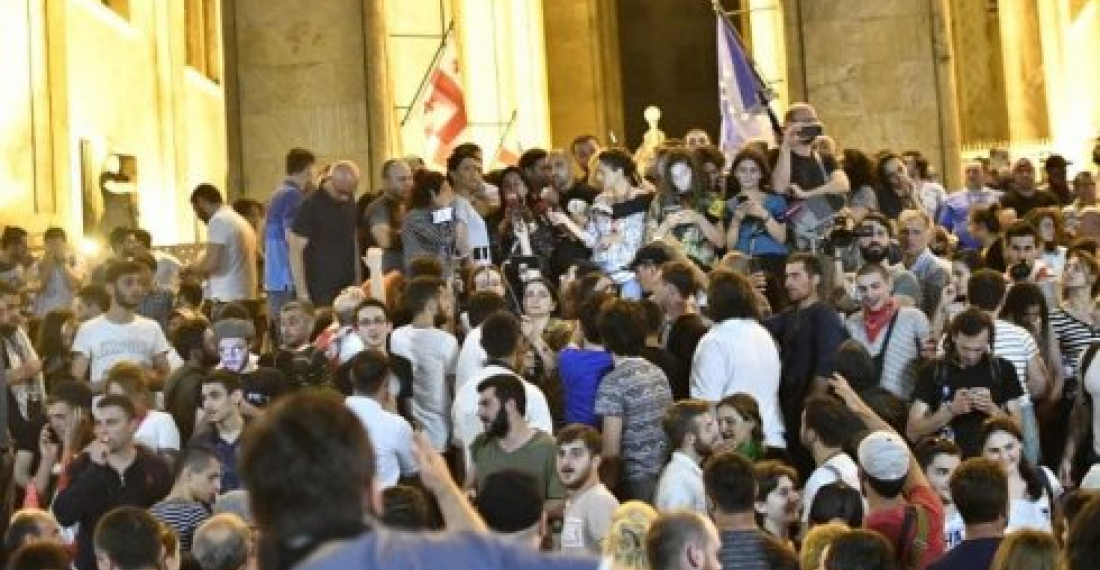The planned "March of Dignity" that was due to be held in the Georgian capital on Saturday morning (22 June) as part of the Gay Pride events, was postponed by the organisers due to the tense political situation in the country. In a statement, a number of embassies and international organisations praised the decision of the organisers, but re-affirmed the right of the march to take place. Religious zealots had earlier threatened to disrupt the event.
In the meantime the political situation remains tense after violent protests on Thursday night/Friday morning were broken up by police using tear gas and rubber bullets. A number of demonstrators and policemen remain hospitalised.
The incidents followed a political outcry after a member of the Russian State Duma who was participating in a conference in Tbilisi, was allowed to take the speaker's chair in the Georgian parliament. This resulted in protests inside the parliament building and outside.
Civil society groups called for street protests which however appeared to have been infiltrated by hard line opposition groups who are pushing for a change of government.
On Friday morning, the chairman of the Georgian parliament, Irakli Kobakhidze, who many blamed for the incident in the parliament, resigned.
Peaceful protests resumed on Friday night in front of the Georgian Parlaiemtn building in Tbilisi, but protestors insisted that no opposition personalities attend.
There is continued diplomatic fallout from the incident in the parliament, with the Russian government declaring Georgia unsafe for Russian visitors. Russian airlines were told to cancel their flights to the country.
source: commonspace.eu
photo: Protests in front of the Georgian parliament on Friday night were peaceful (picture courtesy of Interpress News, Tbilisi)






